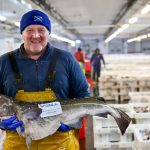Researchers from the UK and Canada have discovered that EU subsidies of 208 million Euros resulted in North Sea fisheries actually being less profitable by a massive 71 million Euros. Dr Sheila Heymans of the Scottish Marine Institute, told that the research show the negative impact that subsidies have on both the biomass of important fish species and the profit that can be made. We found that subsidising fisheries does not make good economic or ecological sense.
According to the researchers two scenarios are to be looked out such as maximising economic return; and maximising ecological stability. Examining the influence of subsidies on fisheries’ profitability between 1991 and 2003 revealed that subsidies decrease the potential profit of the fisheries. The scientists then forecast the outcome of different effort levels in the various fisheries.
In order to raise the profitability fishers operating in the North Sea must increase their effort, says the researchers. Steve Mackinson from Cefas, a co-author on the report, said that the model results suggest that you can maximise economic return from the North Sea in the short-term by increasing effort in fisheries like Nephrops trawling. He further said that their work clearly shows the North Sea ecosystem is intimately linked, with some fleets and species suffering at the expense of gains in others.
The report of research indicates that removing subsidies decreased individual fisheries’ income but increased the overall profitability and total biomass of commercial fish. The model shows that seeking ecological stability for the North Sea increases biomass of commercial fish species, creating a more robust ecosystem that is better able to withstand environmental fluctuations such as those we may see with climate change.








